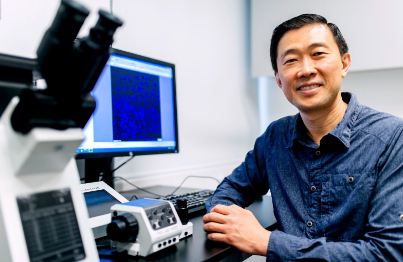
Image caption- Dr. Steven Fang (PhD) , Co-Founder & Executive Director of Invitrocue
Invitrocue, Singapore-based biotechnology and medical innovation company, has achieved a breakthrough in clinical drug testing with Onco-PDO, their personalised oncology drug test. Available in Invitrocue-owned clinical laboratory licenced by Ministry of Health (MoH), Onco-PDO is the first clinical cancer drug screening test in Singapore that looks to personalise treatments by improving the efficiency of chemotherapy regimes through testing using patients’ own cancer cells, reducing overall treatment costs and time.
Backed by more than eight years of cumulative validation data, the Onco-PDO test is built on Invitrocue’s proprietary 3D liver cancer organoid tissue engineering technology, initially developed jointly with A*STAR’s Institute of Bioengineering and Nanotechnology, Massachusetts Institute of Technology (MIT), and the Genome Institute of Singapore in 2012.
Onco-PDO test is CE marked in Europe and in February this year, it has been approved to be covered under National Public Healthcare Insurance in Germany.
The test equips clinicians and oncologists with critical data to prioritise drugs that demonstrate optimal results in targeting each patients’ cancer cells with 75 - 80% positive predictive accuracy and >90% negative prediction rate, depending on cancer type. For patients experiencing relapses or showing no response to multiple treatments, Onco-PDO identifies drugs to which their tumours are either responsive or resistant, thereby improving their response to specific cancer treatments.
Currently, the test can be performed for patients with breast, ovarian, lung, colorectal, pancreatic, liver, gastric cancers, as well as head and neck cancers. Invitrocue is actively exploring opportunities to expand its application to other cancer types soon.
Invitrocue now operates in Singapore, Hong Kong, and Germany, with a recent expansion into Malaysia. The company plans to expand into more countries in the Southeast Asia region and has already garnered significant interest from patients and clinicians in the United States.




